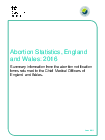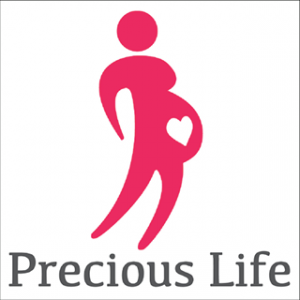
By Ann Marie Foley - 15 June, 2017
 The number of women travelling to England and Wales for abortions has dropped for the 15th consecutive year. While the Pro Life Campaign (PLC) welcomed the figures, it stated that the reasons for decline are far more complex than abortion advocates suggest.
The number of women travelling to England and Wales for abortions has dropped for the 15th consecutive year. While the Pro Life Campaign (PLC) welcomed the figures, it stated that the reasons for decline are far more complex than abortion advocates suggest.
“It is a very welcome development,” said Cora Sherlock of the Pro Life Campaign. “I find it puzzling however that some pro-choice advocates instead of welcoming the decline are using it as another opportunity to push for access to wide-ranging abortion in Ireland.”
The Abortion Rights Campaign (ARC) spokesperson Linda Kavanagh said that the figures “clearly show that the Irish government continues to fail in its obligation to meet the healthcare needs for thousands of women and girls every year”.
She spoke of the teenager who was sectioned for asking for her legal right to a termination under the Protection of Life During Pregnancy Act 2013, and added: “it is distressing to note that 15 girls under the age of 16 were forced to travel abroad for healthcare that should be available to them at home in Ireland”.
In 2016 *3,265 women travelled from Ireland to England to have an abortion, down from 3,451 in 2015 and 3,735 in 2014. This represents a continual decline in the numbers since 2001, when the number of Irish abortions 6,673.

Cora Sherlock of the Pro Life Campaign
Cora Sherlock stated that the availability of the abortion pill online is a factor in the fall in the numbers of women travelling, but that it is being “grossly exaggerated” as a reason by pro choice campaigners.
“The facts are the fall in the number of abortions has been happening for 15 years now, a period of time much longer than abortion pills have been readily available online,” she said.
She noted that on social media a number of women have expressed abortion regret and she said this does not receive much attention in mainstream media. She said that this deserves more attention in order to understand the different ways this issue impacts on the lives of people.
Precious Life has welcomed a 13 per cent drop in the number of women travelling from Northern Ireland to Britain for abortion. The figures show that 724 women from Northern Ireland travelled to Britain for an abortion in 2016, compared with 833 the previous year.
“We welcome the fact that 109 fewer Northern Ireland babies have been killed by abortion in Britain. This is proof that our strategies and campaigns are working. In the past ten years the number of women from here travelling to Britain for abortions has decreased by a massive 54 per cent – the number has more than halved. This annual decline in numbers is very encouraging,” said Bernadette Smyth, Director, Precious Life.
She added that ‘724’ is more than just a statistic, as each of the 724 women felt they had no choice but to have an abortion.
“More needs to be done to help women in such desperate situations. No woman in a crisis pregnancy should ever feel that abortion is her only option,” she said.
She urged the Department of Health in Northern Ireland to support pregnancy resource centres like Stanton Healthcare Belfast, which offers women advice, maternity and baby supplies and practical assistance.
“With more support for women we can expect to see further reductions in the numbers of abortions,” she said.
 Speaking of the serious complications during some abortions carried out in England and Wales in 2016, she concluded: “Unlike the rest of the United Kingdom, our pro life laws protect both mother and child.”
Speaking of the serious complications during some abortions carried out in England and Wales in 2016, she concluded: “Unlike the rest of the United Kingdom, our pro life laws protect both mother and child.”
She called on politicians in the Northern Ireland Assembly to defend and uphold pro life laws.
Separately, parents whose children have been diagnosed with life limiting conditions have hit out at what they describe as “UN interference in Ireland’s abortion laws”.
Tracy Harkin of Every Life Counts spoke out against the UN Human Rights Committee’s finding that Ireland violated the human rights of a woman who travelled to Britain in 2010 for an abortion after her baby was diagnosed with a condition deemed incompatible with life. She said the UN is pushing misinformation by referring to severe disabilities as ‘fatal abnormalities’ or ‘incompatible with life’.
“It’s clear that this UN Committee has utterly failed to keep up with progressive, modern medicine or with the research that shows that abortion causes significantly more distress and despair to women in these circumstances,” she said.
“They seem totally outdated in their understanding, and neither do they seem to be interested in the facts regarding these conditions – one such fact being that no doctor can say with certainty that a baby will die before birth, or know how long a baby will live after birth.”
She said that her own daughter, Kathleen Rose, has Trisomy 13, a condition described as incompatible with life, and her daughter is now ten years old.
Tracy Harkin said that research also showed that 90 per cent of Irish parents continued with their pregnancies after such a diagnosis, but the voices and the needs of families were being drowned out in the clamour to legalise abortion.
*Summary Abortion Statistics, England and Wales: 2016. Full report published by British Department of Health. See https://www.gov.uk/government/statistics/report-on-abortion-statistics-in-england-and-wales-for-2016.